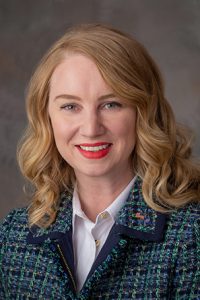Senior LGBTQ protections considered
LGBTQ Nebraskans would be protected from discrimination in senior care facilities under a bill heard Feb. 16 by the Health and Human Services Committee.

LB1136, introduced by Omaha Sen. Megan Hunt, would prohibit licensed care facilities from denying admission to an individual who identifies as LGBTQ or transferring or refusing to transfer a resident within the facility or to another facility — or discharging or evicting a resident — on that basis or because of their HIV status.
Among other provisions, the bill also would prohibit senior care facilities from restricting access to living spaces or restrooms based on gender identity.
Hunt said older LGTBQ Nebraskans face a unique set of challenges that remain unaddressed.
“This kind of discrimination is not often reported and there are many stories about how these seniors have to go back into the closet when entering long-term senior care for fear that their rights won’t be respected,” she said.
Todd Stubbendieck, director of AARP Nebraska, testified in support of the bill, saying older individuals should be able to live their final years with dignity and without having to hide who they are.
“Many LGBTQ elders are worried about their safety in care facilities,” Stubbendieck said.
Randy Hagar also testified in support of LB1136. Hagar, a therapist, said many of his clients face multiple physical and mental losses as they age. Those issues are compounded by being LGBTQ, he said.
“To think of having reduced care, of having less social support or even to worry if you’re going to be discriminated against in your residence, just adds layers of stress,” Hagar said.
Representing OutNebraska, Abbi Swatsworth spoke in favor of the bill. She said LGBTQ seniors are twice as likely to live alone and four times less likely to have children than heterosexual seniors, meaning they are more likely to need senior care living.
Becky Wisell of the state Department of Health and Human Services testified against the bill. She said LB1136 would require DHHS to hire additional staff to handle paperwork, oversight and inspections.
“This bill would require the Division of Public Health licensure unit to develop new inspection processes for five different licensed facility types,” Wisell said.
The committee took no immediate action on LB1136.

